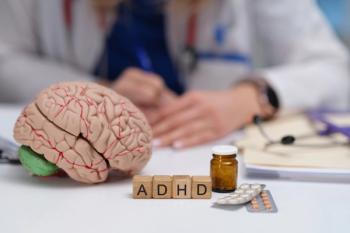
Treatment Dosage in Patients With Pediatric ADHD
Experts in psychiatry discuss strategies for titrating to optimal doses for patients with pediatric ADHD.
Episodes in this series

Robert L. Findling, MD, MBA: You’ve worked with the family and the patient, and you’re starting a medicine treatment. How do you titrate? How do you optimize?
Timothy Wilens, MD: It used to be thought that you wanted the lowest effective dose, a dose that works but isn’t causing adverse effects. Thirty years of data looking at dose response—how much you give and what response you get—consistently show that you need to dose upward to get the best response with the most tolerable adverse effects.
In some ways, that’s the art form of medicine. It isn’t forced to a certain dose. It isn’t saying, “We’re going to keep you at the lowest dose.” It’s saying, “I want you to go up X amount every X days.” I say every 3 to 7 days. If the person has been exposed to stimulants before, I’d go every 3 days. If it’s a new start, there’s no urgency to get the dose right immediately. You’re not treating meningitis. ADHD is important, but you don’t need to treat it yesterday, so take your time and go weekly. I’d go weekly with a certain dose increment based on whatever preparation you’re using.
When you get to a reasonable dose, you say to people, “You’re looking for improvement.” I usually try to pick 3 or 4 things that the child or a parent identified as the most problematic. Then sometimes we’ll go a half-dose higher. Or if the parents like to hold it at that dose—especially if there are some adverse effects—we’ll hold it and get it there. It’s no longer just when they get its first effect. Pretty much every dose-response relationship shows at a low dose. You’ll get some response, and it will be significant vs placebo. But as you go up on the dose, you see a much more significant response, and then it’s trying to attenuate that vs the adverse effects that somebody might be experiencing.
Robert L. Findling, MD, MBA: Because across the dosing range, some people have a nice linear dose-response curve, but some have an inverted U. You can go a little too far, and you don’t want to do that.
Timothy Wilens, MD: That’s right. You’ve done these studies. In general, it’s linear. But periodically, somebody responds to a low dose, and then you go to a moderate dose and they respond better. Then you go to high dose and they have adverse effects and don’t respond well, so you back it down to the moderate dose, which is the optimal dose for that person.
Robert L. Findling, MD, MBA: It also speaks to what we were talking about before regarding working relationships. Tell people: “If we’ve gone a little too far, which sometimes happens, give me a call. We’ll take care of you and we’ll manage this.” If you don’t give people a heads-up or have a good working relationship with them, nobody wins, and the child doesn’t get the care they need.
Timothy Wilens, MD: That’s such an important point. I underscore what you just said. I discuss with people what it’s going to be like if they’re on too much, because parents worry about that. I say, “You’ll know when they’re on too much.” You feel as though you’ve had too much coffee or caffeinated beverages. You feel on edge and get jumpy. You won’t feel good. You may have a headache or stare. If children are picking or anything, that’s way too much. The good news is that’s going to pass in a couple of hours, and then we’re going to back it down the next day. The next day, it will be fine. They’re going to feel good by the end of the day. It doesn’t carry over to the following day.
The other important nuance to what you said is if you don’t get it right in discussing things with parents, you may not even have an effect, but adherence data show that adherence drops off precipitously after the first few prescriptions. In some institutions, half the people don’t fill the prescription after the first prescription. To your point, there hasn’t been enough back and forth.
Robert L. Findling, MD, MBA: Certainly, it’s about trust.
Transcript edited for clarity
Newsletter
Access practical, evidence-based guidance to support better care for our youngest patients. Join our email list for the latest clinical updates.








